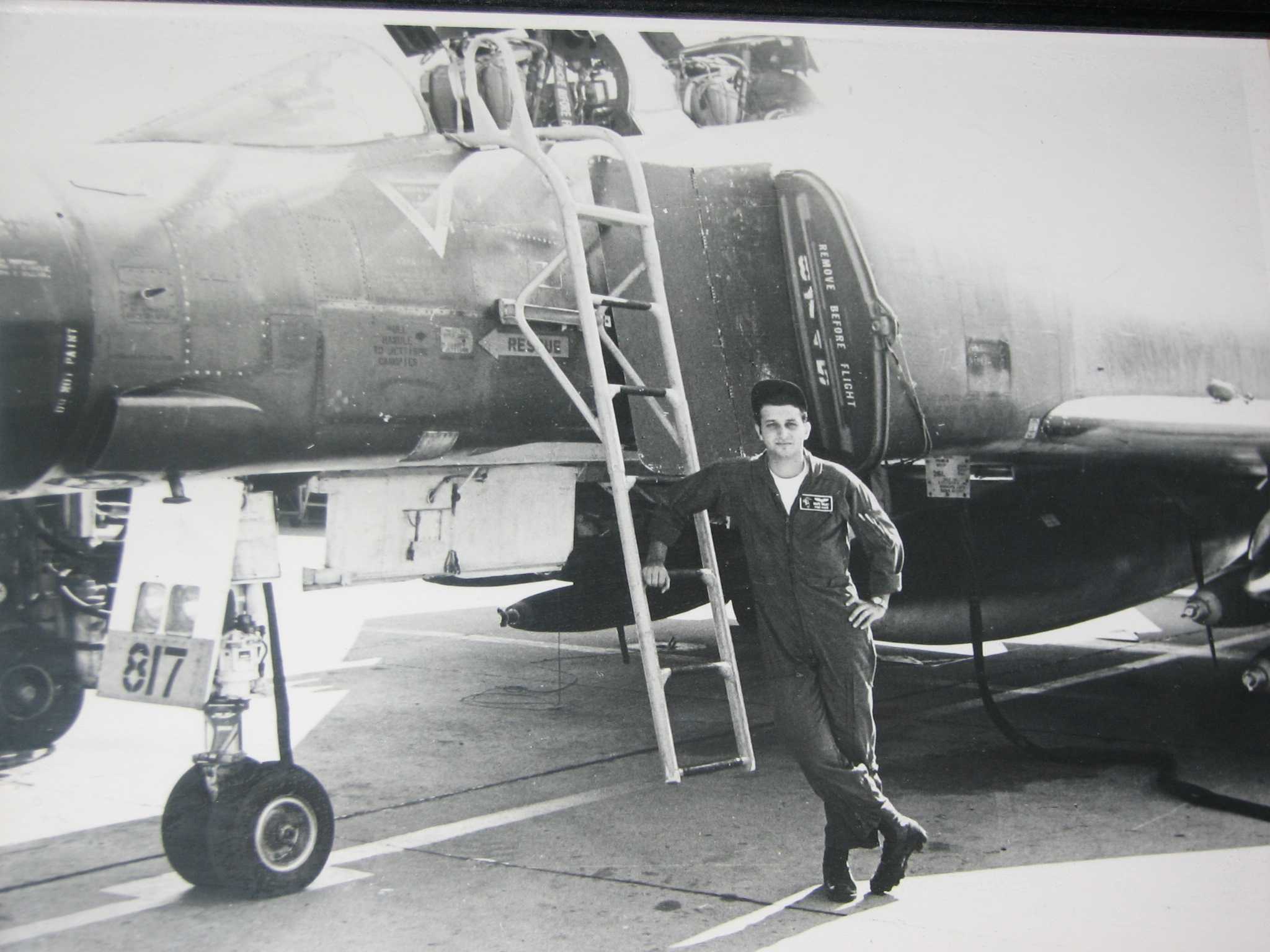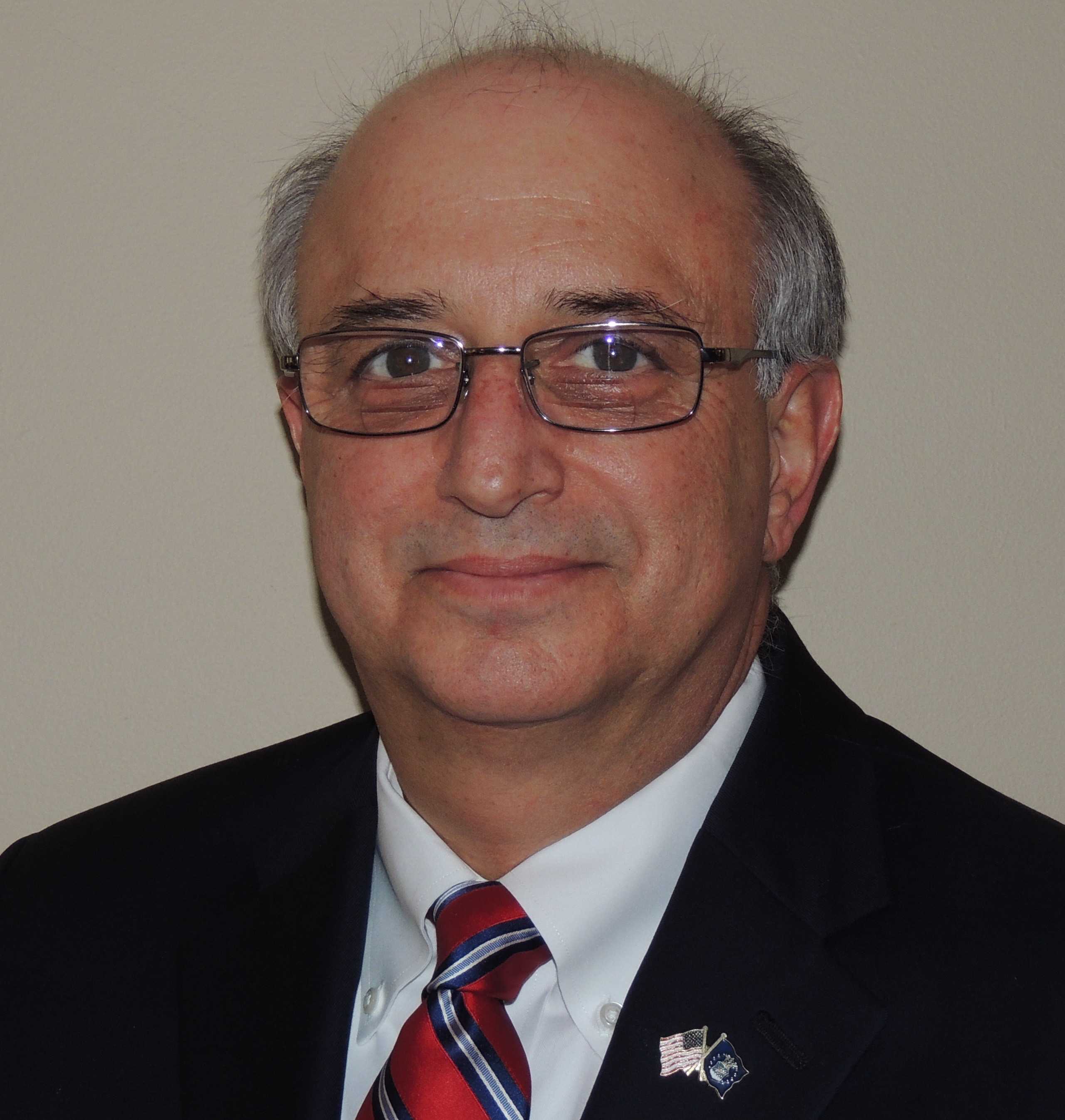Veteran reflects on time as prisoner of war in Vietnam
Ralph Galati, ’70, director of Veterans Services, was a captain in the United States Air Force during the Vietnam War. His plane was shot down, and he was taken prisoner in what was known by the American soldiers as the “Hanoi Hilton.” Galati was released after spending 14 months as a prisoner of war (POW). He returned to Philadelphia, worked for IBM for 28 years, and then was offered a position at Saint Joseph’s University as the Director of Veterans Services. Currently, he provides opportunities and seeks career advancement for veterans.
What year and why did you enlist in the USAF?
“I was in the ROTC program, here at St. Joe’s. So when I graduated in 1970, I also was commissioned as the second Lieutenant in the Air Force. I knew at the time that my objective was to go to flight school. At that time the Vietnam War was still raging, so I knew I would likely end up somewhere in southeast Asia.”
What was it like being in the armed forces during the 1970s?
“Unsettling. It was a very difficult time in the ’60s and ’70s, especially for any soldier coming back from Vietnam. It was hard then, as opposed to today, to separate the soldier from the war. Most everyone was anti-war, anti-military, and anti-government. So by default, when the soldiers came home they were a part of that establishment to the point where they couldn’t wear their uniforms in public, they couldn’t wear it when they came home, and in many cases couldn’t put being a solider on their resume to get a job.”

What was your experience in “Hanoi Hilton?”
“It was as one would expect. Isolation and solitary confinement were tough and I spent 75 days in that. Life as a POW was difficult. A good day was just being bored to death amd being left alone. You had periods of punishments, periods of isolation, bad food, no medical care, interrogations, sleep deprivations, and food deprivation. The nice thing about it was that by the time we got there, the bulk of the POWs, the other 500 or so that were in Hanoi, had been there for four or five years and some up to eight and a half years. By virtue of their long period of captivity and strong resistance, life became a little better for us because of them. Being there tested your toughness to be able to perform as a military officer, and to uphold your own individual honor and uphold the code of conduct.”
How did you survive being a POW?
“When all you have is you, you better suck it up and figure out how tough you are. What usually happens is you find out what you’re really good at and how weak you are. You try to overcome those weaknesses and build on those strengths. You find out that you’re better than you thought you were. You’ll fail miserably but you learn from it. It was an endurance test, it was a test of your resolve, honor, and integrity.”
What would you like people to know about the experience of being a POW?
“It was not heroic. I know people like to say that, but I’m not even sure it was brave. When it comes down to it, it’s just doing your duty. The least we could do was hold ourselves with honor and integrity by not giving away any information that was valuable to the enemy. You had to do the best you could because you still had hundreds of thousands of guys fighting on a day-today basis in South Vietnam, some being killed and some being injured. We did it for them. Another thing is that it was really uncomfortable coming home. As nice as it was having a grateful country welcome us, it was uncomfortable because the several million guys that were there before us did not get a welcome home. Even today, if I see a Vietnam veteran I’ll welcome them home because I know they might have never got one. It is my job today to let the American public know that my welcome home was not the same as everybody else’s.”
What was your life like in the immediate months after your returned home from Vietnam?
“My wife was young and had a baby while I was gone, so acclimating back into a family was difficult. Being 25 helped. I had pretty good resilience. My wife will tell you that I was very introverted and very calloused, still am. I didn’t mind answering questions, but I seemed to think sometimes that it was more of interrogation, so I would just slam the door on the

m. Over time you just kind of get over that. I was only gone a year and a half total, so it wasn’t that big of a deal. The guys who were gone six, seven, eight years coming back with their kids are young and now they’re teenagers, or their wives left them and taken all their money, or their military careers were, who knows where they went. For them it was tough. Mine was simpler and easier adjustment than most. They gave us 90 days off to readjust and figure out what our next assignment would be, but we all carried some baggage.”
Did you ever return to Vietnam like many U.S. POW’s did?
“I don’t have a desire to go back. Some of my fellow POWs and Vietnam veterans have gone back for different reasons. I don’t have any issues around closure. I remember what it was like, I remember flying away. There are dozens and dozens, if not millions of places to go before I go there. There is no attraction for me to go back. The only thing that would compel me to go back is if the Department of Defense’s POW/MIA Accounting Agency, which is still trying to find the 90,000 that were missing since World War I, came to me and asked me to help them go back and retrieve some of the missing and bring back the remains for the family that would cause me to go. Nothing short of that.”
What are your views on torture, or what is now called enhanced interrogation techniques?
“Senator John McCain, who was there many more years than I was, is strongly against torture. None of us obviously liked it on the receiving end. Most POWs would tell you that most every person has a breaking point and that is true. You will break emotionally and physically. There is just a point when you can’t endure it anymore. When they start beating you up or putting a gun to your head, the rules change. The rules for us were to withstand as much as you can until the point of unrecoverable injury or death, and that’s really hard to know when you’re going to die. Sometimes you don’t have your wits about you and you are not on your A game. Is torture a really good technique? Probably in some cases. For people like us that had some training you can probably get away with just about anything without telling any of the good secrets.”
How should we (civilians) support war veterans?
“We have been able to separate the soldier from the conflict. All the activities since 1991 in the Middle East and the Persian Gulf areas, nobody has liked where they have turned out. But through it all, the American soldier is very well respected. Big change from 1960 and 1970. The best thing an individual can do is to encourage a veteran to get some help. The odds are that seven out of 10 veterans are not aware of the benefits that can get. You would be doing them a favor by getting them on a path to get some help. Whether that’d be calling us, the Veterans Affairs, or whether they are a student here or not, just getting them to an organization that could help them. If they are in the St. Joe’s community, we want to know who they are so we can help them.”













































